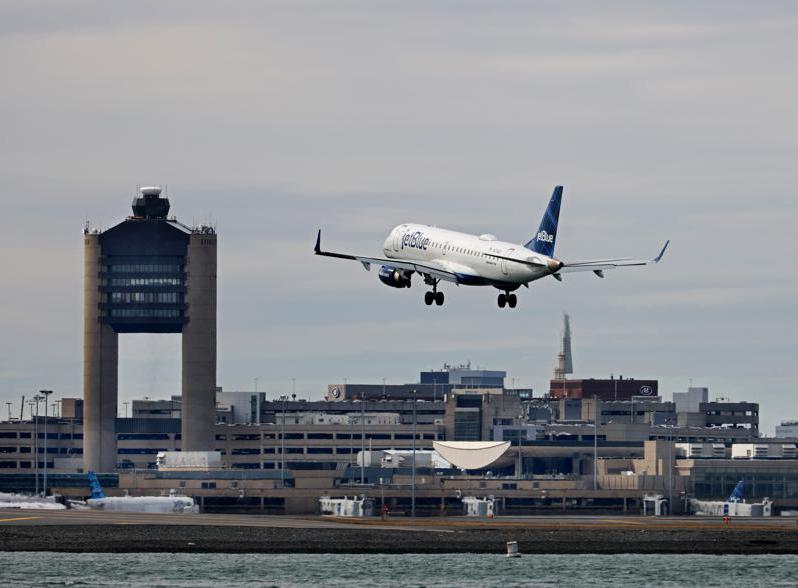It’s been a good week for JetBlue. Shares of the financially troubled airline jumped 20 percent on Tuesday after JetBlue posted a surprise profit and said it would defer $3 billion in aircraft spending to improve cash flow.
It follows last week’s announcement that JetBlue will begin service from Manchester-Boston Regional Airport to Fort Lauderdale, Orlando, and Fort Myers in January. The airline is also adding seasonal flights and a new route to San Juan out of Providence and growing its presence in Hartford. In addition, there will be more seasonal flights from Boston to popular Florida and Caribbean destinations where the airline already flies, such as Aruba, Barbados, Fort Lauderdale, West Palm Beach, and St. Lucia.
On the surface, it sounds like cotton candy and caramel apples. Profitability and expansion are happy words, particularly after JetBlue’s many mistakes. However, JetBlue’s playbook for profitability is not good for Bostonians who have come to rely on the airline’s extensive domestic network.
Since the start of 2024, JetBlue has stopped or plans to stop service from Boston to Baltimore, Charlotte, Kansas City, Minneapolis, Newark, Rochester, and San Antonio. Additionally, JetBlue will suspend flights to Milwaukee this fall and winter and will end service to London Gatwick until spring 2025 (the airline will still fly to Heathrow). By eliminating these less profitable routes, the airline can beef up leisure travel destinations.
At other airports, such as Dallas, Fort Worth, and LaGuardia, there are now fewer flights per day to Boston. Given JetBlue’s large-scale departure from the West Coast, it’s unlikely we’ll see a Boston to Burbank or seasonal Boston to Palm Springs route again.
It’s understandable that JetBlue would slash 50 unprofitable routes across the country to stop hemorrhaging cash and focus on its core markets. Last May, a federal judge ordered JetBlue and American Airlines to dissolve a partnership they created in Boston and New York. In January, another judge blocked JetBlue from buying Spirit, saying that the proposed $3.8 billion deal violated antitrust law. The company hasn’t posted an annual profit since before the pandemic.
JetBlue still has a larger presence at Logan than any other airline, but by betting big on leisure routes, they’re abandoning customers who built loyalty with the airline for less glamorous travel. Yes, JetBlue is adding a second daily flight to Phoenix over the winter, but it comes at the expense of those who need a flight to Charlotte or San Antonio. Delta, which has been working hard to build Boston as a hub, will now have several opportunities to collect JetBlue passengers.
“As difficult as it is for us to make decisions for closing markets and closing routes, at the core our goal is to move to profitability as quickly as we can,’’ JetBlue president Marty St. George said during the company’s Tuesday earnings call.
JetBlue’s new focus on smaller, secondary airports such as Providence, Manchester, and Hartford mirrors what the airline’s founder, David Neeleman, has done with his new airline, Breeze Airways. Neeleman, who left JetBlue in 2008, founded Breeze in 2021 to serve smaller airports. He’s grown the airline’s presence significantly in New England, and Breeze reported its first profitable quarter this year.
Christopher Muther can be reached at christopher.muther@globe.com. Follow him @Chris_Muther and Instagram @chris_muther.
